
Harlequin
Harlequin
Harlequin
Are you familiar with a rabbit that boasts a truly unique pattern? Yes, it's the 'Harlequin'! Since it's rarely seen in Japan, if you know about this rabbit, you could consider yourself quite the rabbit aficionado. Whether you are hearing the name for the first time or are already a fan, why not explore the secrets of the Harlequin together?
Harlequin Basic Infomation
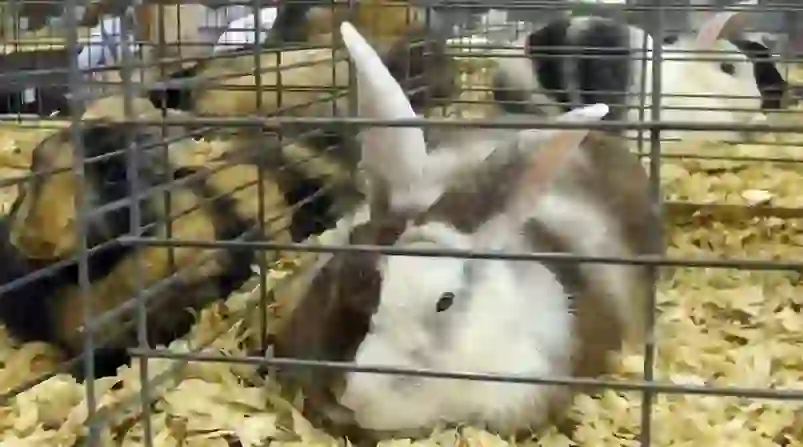
Country of origin: France
Senior/Male: Over 8 months old, 2.95 kg to 4.08 kg, Ideal weight 3.40 kg
Senior/Female: Over 8 months old, 3.18 kg to 4.31 kg, Ideal weight 3.63 kg
Junior/Male: Under 6 months old, less than 3.40 kg, Minimum weight 1.70 kg
Junior/Female: Under 6 months old, less than 3.63 kg, Minimum weight 1.70 kg
The Harlequin, sometimes also referred to as 'Harlequin', will be introduced on this page under the unified name of 'Harlequin'.
The Harlequin is a breed of rabbit that has been artificially developed. Its exact history is unknown, but it is thought to possibly have originated from crossing the Dutch breed with wild rabbits.
Therefore, when it was initially developed, it tended to have more of a messy Dutch-like appearance. It made its debut at a rabbit show in Paris in 1887 and later made its way to America. It was registered with the American Rabbit Breeders Association (ARBA) in 1973.
Harlequin Q&A

What is the origin of the name 'Harlequin'?
The name comes from the rabbit's unique appearance, with half of its face and body displaying a two-color composition, resembling a jester's outfit. 'Harlequin' is the English reading of the French word for jester, 'Arlequin'.
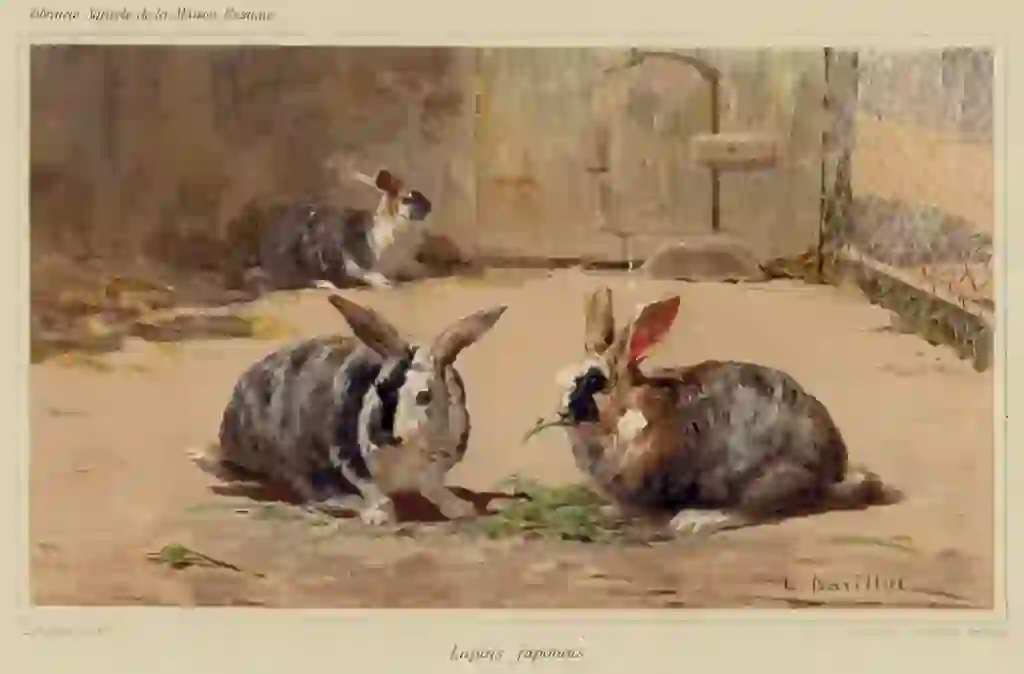
What are the color variations of the Harlequin?
Japanese: The design is inspired by the Japanese Rising Sun flag. Colors include Black, Blue, Chocolate, and Lilac.
Magpie: Named after the bird, Magpie. Colors include Black, Blue, Chocolate, and Lilac.
Colors available are Brown, Blue Grey, and Blue. The Harlequin is exclusively a short-haired breed.
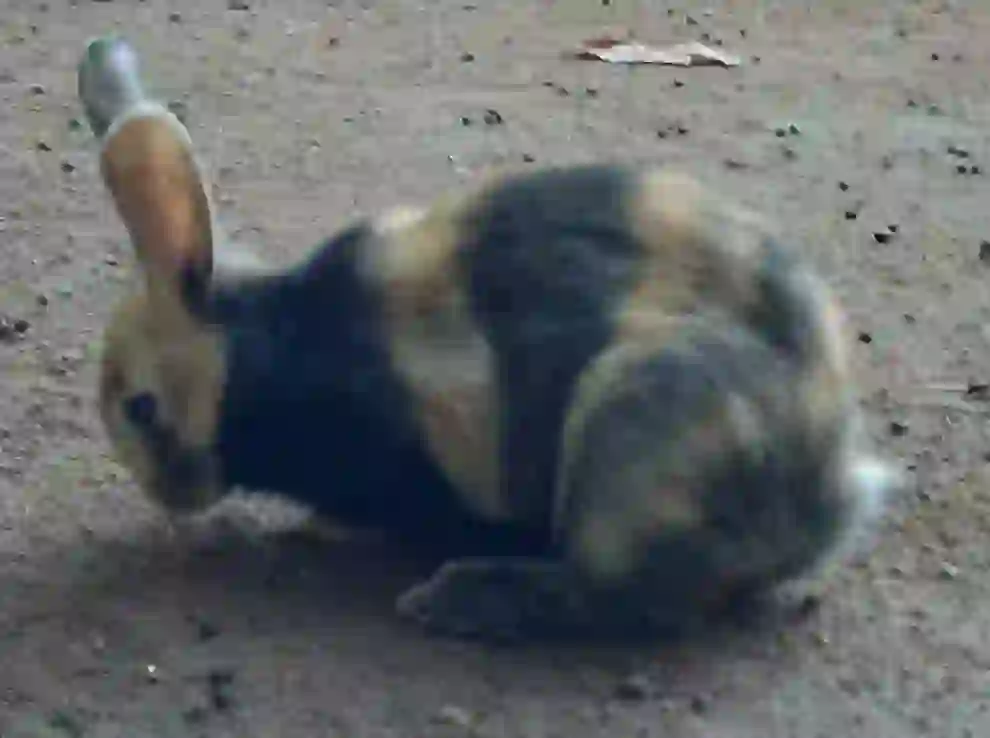
What does the Harlequin look like?
Harlequins have a commercial body type with well-proportioned ears and fur that lies flat against the skin. Their most distinctive feature is their unique coloring, which sets them apart immediately from other purebred rabbits. In the case of the Japanese variety, the configuration is Orange × Fawn × (Black, Blue, Chocolate, Lilac), and for the Magpie, it is White × (Black, Blue, Chocolate, Lilac).
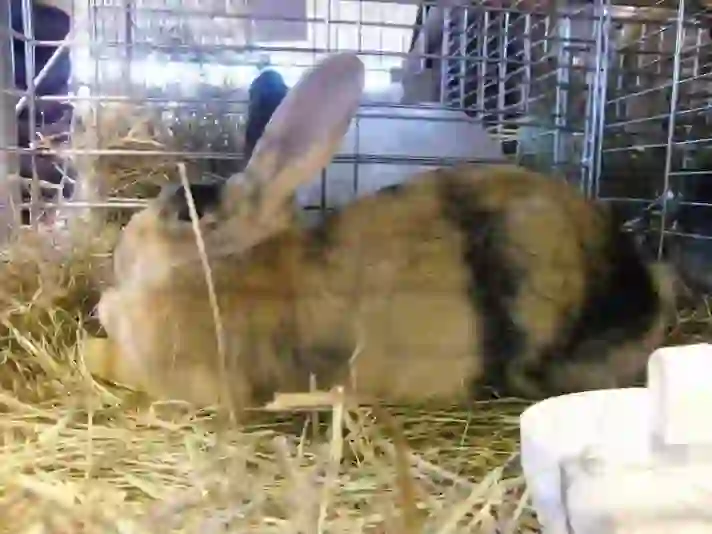
Is marking an important point for Harlequins?
Indeed it is. Especially in rabbit shows, the marking can account for more than half of the assessment. Here are the details:
1. The vertical half of the face must be different colors on each side.
2. The ears should also be different colors, ideally opposite to the face.
3. The chest and legs should differ from side to side, ideally opposite to the face color.
4. There should be 5 to 7 vertical stripes or a crisscross pattern on the back.
These are the criteria for superior Harlequin markings.

Where can I encounter a Harlequin?
In Japan, Harlequins are rare, and finding a specialist breeder can be difficult. There are breeders abroad, so if you have contacts overseas, it might be easier to find a Harlequin through them.

How much does it cost to purchase a Harlequin?
Approximately 100,000 yen. The Harlequin has a low distribution volume in Japan, making it pricier compared to other rabbits. Show type rabbits, which have the potential to win in shows, are called 'Show type', and those suitable for home pets without any issues are called 'Pet type'. Show type Harlequins can fetch even higher prices.

I want to know more about the personality of the Harlequin!
Harlequins are generally calm and curious, making them suitable as pets even for families with small children. Their grooming needs are relatively simple, making them a perfect breed for first-time rabbit owners.

What diseases are Harlequins prone to?
Harlequins are susceptible to 'Rabbit Gastrointestinal Syndrome (RGIS)', 'Malocclusion', and 'Torticollis'.
Rabbits often accidentally swallow hair while grooming, which can lead to serious digestive blockages if not passed properly.
Previously known as 'hairball disease', it was renamed to more accurately reflect that not only hair but other materials can block the digestive tract.
All rabbits are at risk of RGIS, hence it's crucial to feed them fibrous timothy hay, ensure they get enough exercise, and avoid dehydration. Regular brushing by the owner is also recommended.
Malocclusion can make it difficult for rabbits to eat or drink properly. Since rabbit teeth continue to grow throughout their life, it is normally controlled by chewing on wood or fibrous food. However, any disruption to this can lead to misalignment.
If untreated, it can lead to further complications, such as nasolacrimal duct stenosis, so it's advisable to consult a vet if you notice any changes in eating habits or tooth growth.
Torticollis is not a disease but a symptom where the rabbit's neck is tilted. It can develop if bacteria infect the brain areas responsible for balance.
If severe, it can prevent the rabbit from drinking or eating, potentially leading to fatal outcomes. Bacterial infections are treated with medications, but prevention is also crucial.

What is the lifespan of a Harlequin?
Harlequins live for about 5 to 10 years, which is slightly longer than the average rabbit lifespan of 6 to 8 years.

Would you like to become a part of the 'Animalbook.jp'?
Turn your knowledge into Q&A and share it with the world. ※Publication will be activated after purchase. Let's share information together!
Harlequin Type of List
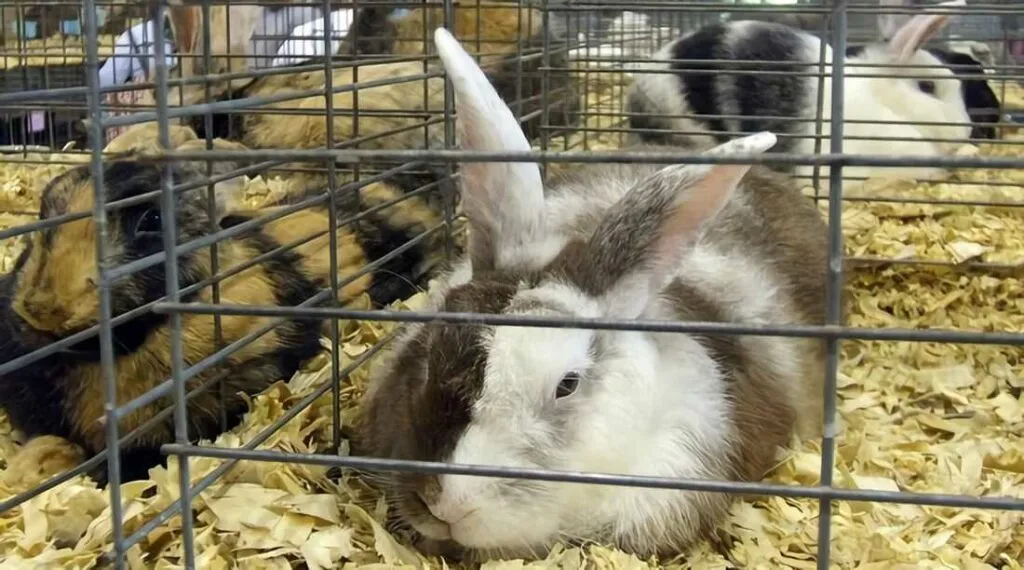
- Harlequin
Information
Congratulations! You are the first commenter!

Create Your Favorite List!
Harlequin
Save the animals you love! Build your own list to quickly revisit your favorites later.

Would you like to leave a comment?
※Please note: This is for the purchase of rights to post comments within the article.
Find Your Favorites!
Our shop offers a unique and attractive selection of goods themed around various animals.
Harlequin References

- うさぎの品種大図鑑 監修:町田修
- American Harlequin Rabbit Club http://americanharlequinrabbitclub.weebly.com/
- うさぎ総合辞典 http://www.usagi-jiten.co.jp/
- うさぎとの暮らし大百科 https://www.anicom-sompo.co.jp/usagi/
- うさぎタイムズ https://www.ferret-link.com/usagitimes/
- もねペットクリニック http://www.mone-pet.com/
- うさぎの丘 https://www.usaoka.com/index.html
Harlequin Introduction of media used

出典:https://commons.wikimedia.org/wiki/File:Harlequin_Rabbits.jpg

出典:https://commons.wikimedia.org/wiki/File:Lapin_Japonais.jpg

Help Enrich Our Animalbook.jp with Your Media!
We are constantly looking to expand and enrich our Animalbook.jp with amazing photos and videos of animals. If you have any media that you'd like to share, please contribute and help us showcase the beauty and diversity of the animal kingdom. Your submissions will be credited and featured in our encyclopedia, reaching a wide audience of animal lovers.


















